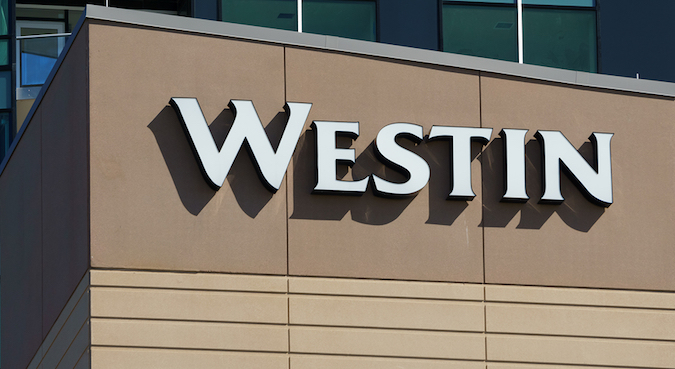
Starwood Hotels, which operates well-known hotel brands such as Westin, Sheraton, W Hotels and Le Méridien, said Friday that hackers had infected point of sale payment systems in some of its locations in North America.
The company disclosed that payment systems at “a limited number” of its hotels in North America were affected by the hacks, which through an investigation found that malware was detected in some restaurants, gift shops and other points of sale at Starwood properties.
Other well-known chains operated by the company include include St Regis, Design Hotels, Four Points by Sheraton, Aloft, Element, and the recently introduced Tribute Portfolio.
“The malware was designed to collect certain payment card information, including cardholder name, payment card number, security code and expiration date,” the company said in a statement. “The affected hotels have taken steps to secure customer payment card information and the malware no longer presents a threat to customers using payment cards at Starwood Hotels.”
The company did not say how many payment cards or customers could have been exposed in the breach.
Sergio Rivera, Starwood’s president for the Americas, said the company has been investigating the incident and working with authorities.
“Quickly after we became aware of the possible issue, we took prompt action to determine the facts,” Rivera said. “We have been working closely with law enforcement authorities and have been coordinating our efforts with the payment card organizations. We want to assure our customers that we have implemented additional security measures to help prevent this type of crime from reoccurring.”
Starwood did not specify what type of malware was used in the attack, but other hotel chains have experienced similar attacks targeting payment systems.
This past summer, Trump Hotel Collection found that its payment systems had been breached by cybercriminals after several U.S. banks identified fraudulent activity on cards used at the company’s hotel properties.
In March, the Mandarin Oriental Hotel Group confirmed that the credit card systems at several of its hotels in the United States and Europe had been accessed by cybercrooks. In April, hotel management company White Lodging Services reported that hackers had compromised point-of-sale (POS) systems at 10 of its hotel properties.
Earlier this week, Starwood announced that it had agreed to be acquired by Marriott International to create the world’s largest hotel company that would have 1.1 million rooms across 5,500 hotels and resorts in more than 100 countries.
An old point-of-sale (PoS) malware was found being user earlier this year by cybercriminals to target the customers of resorts, hotels, and casinos in North America and other parts of the world. The threat, known as RawPOS, has been around since 2008 and is considered one of the earliest pieces of malware designed for credit and debit card data theft.
RawPOS is a highly configurable, multi-stage memory scraper that has evolved over the past years. Its modular design has enabled attackers to adapt the threat to the targeted environment.
In March 2015, Visa issued a security alert to warn lodging merchants that malicious actors had been infecting global organizations with RawPOS at an alarming rate.
Two new forms of PoS mawlare were discovered this month, including “Cherry Picker” malware which went largely undetected for the past several years thanks to its use in highly targeted attacks and the use of a cleaner that restores the system to a clean state after data is stolen.
Researchers from Proofpoint also discovered “AbaddonPOS,” which was spotted on systems infected with the banking Trojan Vawtrak, also known as Neverquest and Snifula.













